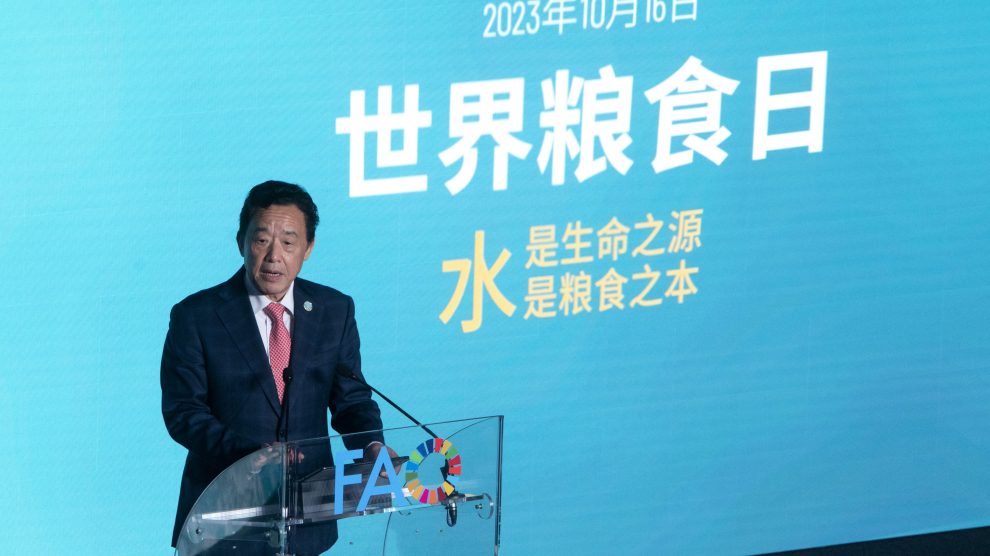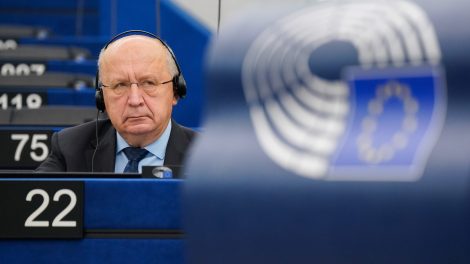Extra-time. Qu Dongyu, the former Chinese vice minister, had his second term as Director-General of the United Nations’ Food and Agriculture Organization (FAO) renewed in July 2023. He is now seeking expanded authority and a salary increase.
- A proposal drafted by the FAO’s legal counsel recommends extending the Director-General’s tenure from two four-year terms to a single six-year term followed by a four-year term, totalling ten years.
- According to the document, this reform would make the role “more attractive to highly qualified candidates having the necessary vision to guide the Organization’s work in a manner that meets the Membership’s evolving needs”.
- Aligning the FAO’s leadership term with those of executive heads at the UN, the International Labour Organization (ILO), and the World Health Organization (WHO) “could also affirm the stature of FAO as one of the most important” organisations in the UN system.
- This was first reported by our sister website, Formiche.net.
Upcoming Council. The proposed reform will be discussed at the 176th session of the FAO Council, composed of 49 member states, set to take place in Rome from 2 to 6 December.
- If approved, the proposal will advance to the plenary conference in June or July, where all 194 member states will have the chance to deliberate.
- Notably, there is speculation that Qu might seek an amendment to make the reform retroactive, which would allowthe current Director-General to extend his own tenure to ten years.
Salary bump. The proposal also includes a salary increase for the Director-General, whose current annual gross salary is $265,910, and a representation allowance of $50,000.
- The suggested pay adjustment, the document argues, would “reflect the complexity of the role,” as the proposal includes consolidating the FAO Director-General’s authority over the World Food Programme (WFP), a UN agency originally established by the FAO in the 1960s-
FAO-WFP power struggle. The document notes that the relationship between the FAO and the WFP “is not simply one of two Rome-based sister agencies”.
- “The relationship involves duties and obligations for the FAO Director-General arising from the operations of WFP”, it reads.
- “The responsibilities of the FAO Director-General vis-à-vis two large UN system entities” support “the enhancement of the remuneration package awarded to the FAO Director-General”.
- The move is seen as part of Qu’s broader effort to consolidate authority over the WFP.
Tensions over budgets. Tensions between the FAO and WFP have intensified in recent years.
- The WFP, led by US appointees since 1992, commands a significantly larger budget—raising $8.3 billion in 2023 compared to the FAO’s biennial budget of $3.25 billion for 2022–2023.
Crises raise FAO’s profile. The FAO plays a pivotal role in setting international standards for food safety and agriculture and shaping global strategies to combat hunger, climate change, and agricultural challenges. Its relevance has grown amid ongoing global crises, including the wars in Ukraine and the Middle East.
- In April 2022, two months after Russia’s invasion of Ukraine, Foreign Policy highlighted Qu’s reluctance to criticise Moscow.
- The magazine observed, to listen to Qu, “you would never know that Russia has been bombing Ukrainian farms and granaries, imposing a sea blockade on Ukrainian grain exports, and generally accelerating a global food emergency that risks sending tens of millions of additional people into an acute hunger crisis.”
- More than two years later, little appears to have changed.
- Following a meeting with Ukrainian Minister for Agrarian Policy and Food, Vitaly Koval, in October, the FAO’s statement referred to the conflict as a “war” but avoided naming Russia as the aggressor.





